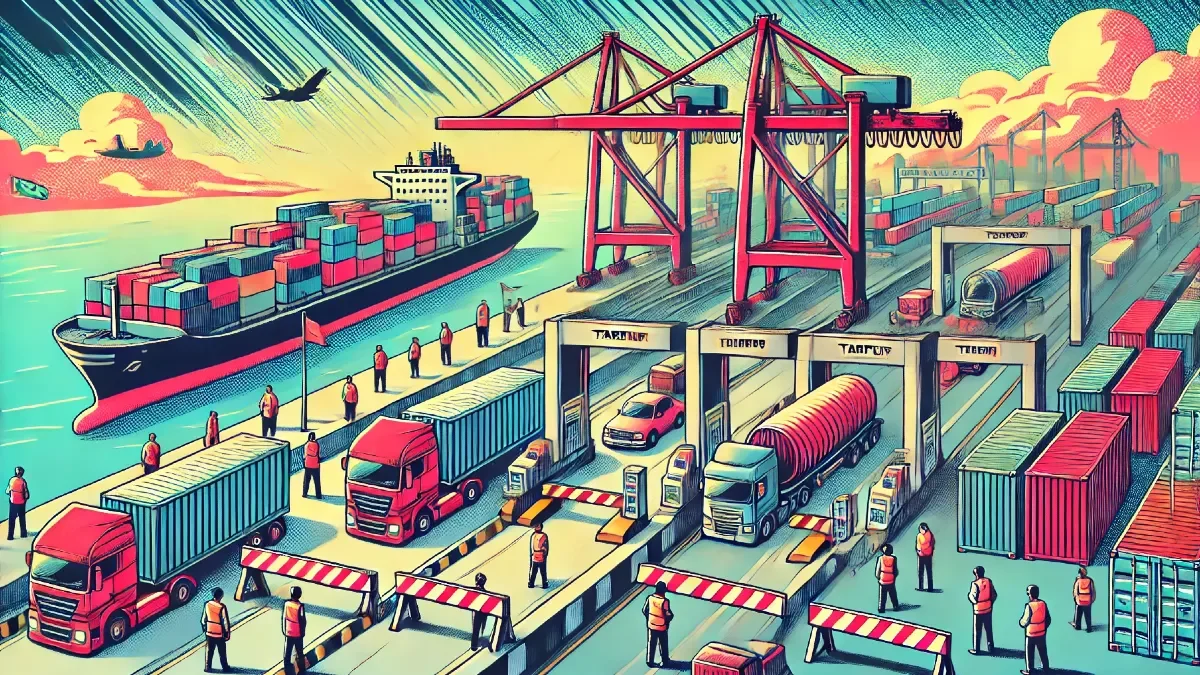Tariffs: The most beautiful word in the dictionary?
So, what’s your favorite word in the dictionary? Square? No, too boring. Evanescence? No, too… impermanent. Wait, I’ve got it: your favorite word for 2025 is tariffs. Some people have claimed it’s the most beautiful word in the English language—I’m not sure Shakespeare would agree.
I’ll admit I wasn’t invited to be a judge in this year’s linguistic beauty pageant to choose the prettiest word of 2025, so I’ll do the next best thing: explain the word that was chosen, and let you decide if tariffs deserve the crown. Let’s dust off our economic knowledge, add a bit of common sense, and look at what’s coming for Mexico—and the rest of the world that trades with the United States of Tariffs: countries like China, Canada, and those in Europe.
Tariffs 101: The tax no one asked for
Tariffs, in the most basic sense, are taxes, duties, and surcharges placed on imported goods. They’re used to negotiate diplomatic and trade deals, protect domestic industries, punish other countries, or raise revenue for the federal government. When a tariffed product arrives in the destination country, customs calculates a fee based on its value and sends it—usually—to the Treasury. So why are they so important, dangerous, and annoying for everyday consumers?
The world is entering a kind of Price Is Right moment, where consumers will have to guess how much they’ll pay for a wide range of products. I remember, when I was a kid and home sick from school, I’d watch the American version. I saw contestants try to guess the price of everything—from a bar of soap to a refrigerator or a brand-new car… all things that, thanks to tariffs, are going to cost more.
Now, you might think tariffs won’t affect you because, after all, the other country will pay. But it’s not that simple. The biggest confusion around tariffs is usually about who actually ends up footing the bill. It’s like going to dinner and not knowing who’s going to cover the guy who just sat down at your table and started ordering cocktail after cocktail at 500 pesos each. You start wondering: am I paying for this guy’s tab? Let’s take a look. We’ll call him Bob—who, in this case, happens to be the Treasury Department of the government imposing the tariff.
The Bob scenario: When the economy turns into a pricey restaurant
To keep things simple, let’s reduce the global economy to a restaurant analogy. You picked this restaurant because it’s the best in town: great atmosphere, delicious food, generous portions, and fair prices. You look through the menu, place your order, and have a pretty good idea of what the final bill will be. But then Bob shows up, sits at your table, and starts ordering drinks and appetizers—which he has no intention of sharing. The waiter adds his order to your bill, and before you can say anything (or sneak one of his appetizers), Bob gets up and leaves. The result? Your bill is now 25% higher than what you had planned to spend.
Bob’s actions didn’t change the quality of your meal, the ambiance, or the portion size. But he did make your dinner more expensive. If you had known you’d be spending 25% more, maybe you would’ve chosen a different restaurant. And if every restaurant had a Bob roaming around, sitting down at tables, racking up bills and vanishing, maybe you’d start rethinking eating out at all. The prices would simply be too high for what you’re getting in return.
That’s exactly what happens with tariffs: they raise the prices of goods you already buy, without improving their quality, size, or usefulness. And who ends up paying? You. Not Bob. Not the restaurant. You.
So why would anyone want to impose a tariff? Why make what we buy more expensive? If the U.S. places a tariff on exports from Mexico, Canada, or China, it’s the U.S. consumer who ends up paying more—not the foreign companies. But here comes the twist: even though the U.S. consumer pays more, they might start considering similar local alternatives that are cheaper than what they used to buy. And this is where Bob’s actions start to hurt foreign companies.
As consumers in the tariff-imposing country look for alternative brands, foreign companies start getting fewer orders. That leads to drops in revenue and business stability. That’s real money lost—real demand that disappears.
If the losses are big enough, the country imposing the tariffs hopes those foreign companies will pressure their own governments to do something about Bob. Does it usually work? Not really. Most of the time, it just ends up raising prices for everyone.
How to prepare for the tariff storm
Since the governments of Mexico, Canada, and China are proposing retaliatory tariffs, prices for everything made in the United States will rise in those markets too. So if you’re doing business in a market affected by these tariffs—on either imports or exports—what should you do?
Start finding alternative buyers for your products in other markets as soon as possible, and diversify your customer base for the long term.
Invest in more advanced AI that can help you improve productivity, cut costs, and operate more seamlessly around the world. (Check out my other columns for ideas.)
Prepare for a period of uncertainty in global markets. Tariffs have a history of causing unexpected ripple effects.
So, is tariffs the most beautiful word in English—or any language? I’d say it depends. In diplomacy and trade, they can be useful if applied strategically. But when done poorly, the costs to consumers, households, and businesses can be extremely high.
In the face of rising tariffs, there’s never been a better moment for Mexico to rethink its place in the global economy—and for Mexican companies to explore new markets around the world. Because the most beautiful word in Spanish might not be tariffs, but sovereignty.
Originally published in Spanish for Fast Company Mexico:
https://fastcompany.mx/2025/02/04/aranceles-palabra-hermosa-diccionario/

